Ukraine: 20 ways the war has changed the world
Vladimir Putin’s invasion of Russia’s neighbour is a watershed in modern history. The impact of the invasion stretches from nuclear fears to longer holiday flights.
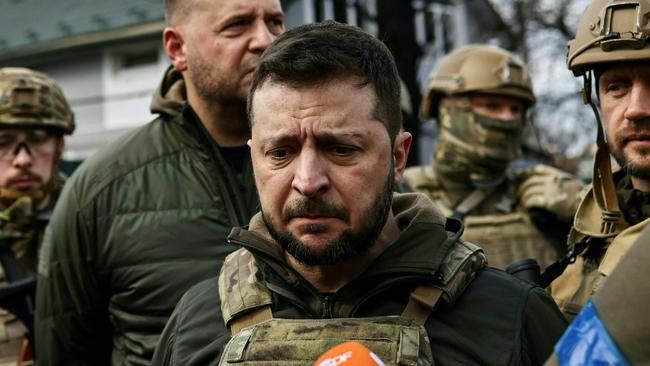
1: Weakened Putin – and Russia
On the eve of Russia’s invasion of Ukraine on February 24, Vladimir Putin seemed at the top of his game. Ten months later, the Russian President is trapped in a war that has gone disastrously wrong – with no exit strategy.
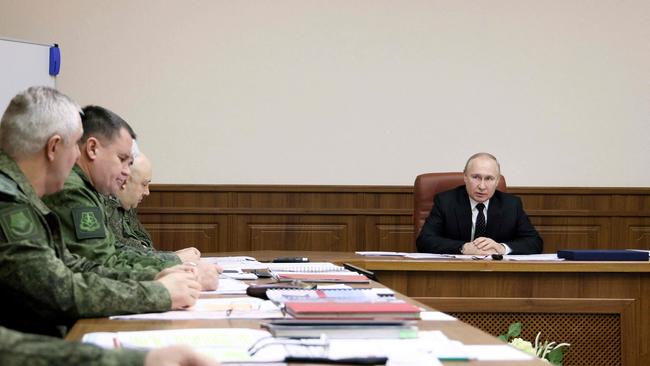
The cancellation last week of his traditional marathon end-of-year press conference suggested he is concerned about the growing unpopularity of the conflict and fuelled rumours that he may be terminally ill and planning to flee. “The increasingly untenable Ukraine war is undermining Putin’s popular legitimacy and his standing with a ruthlessly pragmatic elite that wonders whether he is still the ruler they need,” argues Mark Galeotti, the author of more than 20 books on Russia, Ukraine and the Soviet Union. “Paradoxically, though, this also makes him more dangerous – repression is having to replace genuine authority.”
Putin has found an unexpected new status in the developing world as “an anti-colonial warrior”, Galeotti adds.
“Countries with experience of Western imperialism are susceptible to Putin’s claims to be pushing back against an arrogant US using Ukraine as a proxy.”
2: Brought back fears of nuclear war
For the first time since the height of the Cold War in the early 1980s, there has been alarming talk of the possibility of nuclear war – not so much about a doomsday exchange of intercontinental ballistic missiles but the circumstances in which Putin could order a limited strike with a “tactical” nuclear weapon, perhaps if Ukraine tried to take back Crimea, seized by Russia in 2014.
“We are certainly not yet in the situation when such weapons might be used,” says Andrew Monaghan, a senior associate fellow at the Royal United Services Institute.
“But one of the most dramatic things we’ve found over the year is quite how close we potentially could be to a nuclear war.”
Fear of such an escalation, he believes, has made NATO rule out attempting to enforce a no-fly zone over Ukraine, for fear of clashes with Russian planes.
3: Turned the spotlight on Taiwan
The war has highlighted concerns, especially in the US, about China’s designs on Taiwan. Has it made it more or less likely that Xi Jinping will use force to seize what Beijing sees as a “renegade province”?
Ukraine’s fierce resistance will undoubtedly have given the Chinese leader pause for thought about any potential invasion of his neighbour.
Yet one benefit for Xi is that Putin’s estrangement from the West has made him increasingly dependent on China – underlining the extent to which the balance of power has changed.
4: Fuelled inflation – and industrial unrest
The war has pushed inflation up around the world, creating significant challenges for governments. “Household energy costs are up (in Britain) by 88 per cent over the past 12 months, and at least half of the UK’s current inflation rate of nearly 11 per cent is due to higher energy costs and related increases in food and other prices,” says David Smith, economics editor of The Sunday Times. Before the war, “forecasters expected inflation to be about 4 per cent now”. Inflation has in turn fuelled a massive wave of industrial disputes.
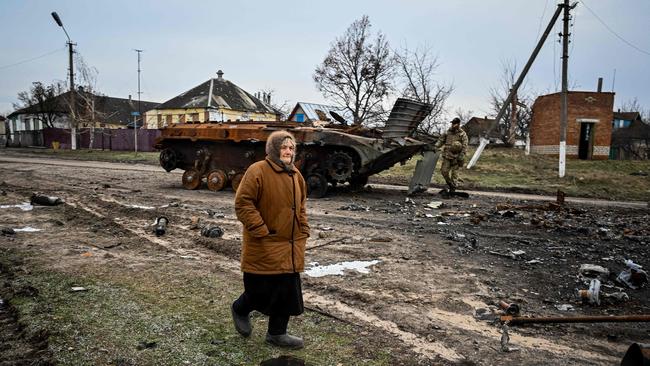
5: Driven more than 14 million Ukrainians from their homes
About 14 million Ukrainians have left their homes, more than 7.8 million of them for European countries – including at least 1.5 million in Poland and one million in Germany (as well as an estimated 2.8 million in Russia). There are more than 100,000 Ukrainians accommodated in Britain.
The World Health Organisation says a further two to three million could be displaced in the coming month as Russia attempts to “weaponise winter” by attacking Ukraine’s energy infrastructure, trying to freeze its enemy into submission.
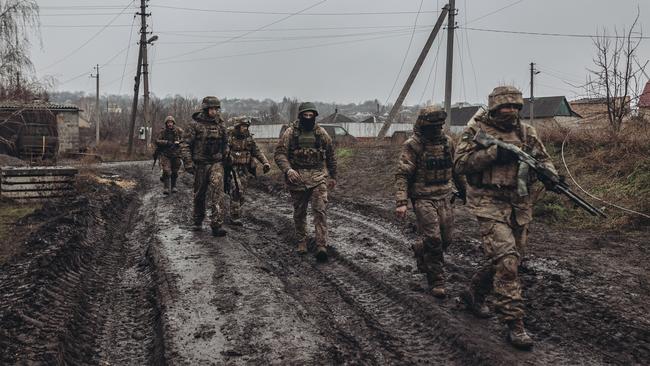
6: Created a new Russian diaspora
Over the past 10 months, more Russians are thought to have left the country than in the aftermath of the 1917 Bolshevik Revolution, mostly to neighbouring countries such as Georgia, Kazakhstan, Armenia and Turkey. Tens of thousands departed soon after the outbreak of the war, when Putin forbade any questioning of the wisdom of his “special military operation”.
This was dwarfed by the estimated 700,000 men thought to have fled to avoid conscription after a “partial” mobilisation was announced on September 21. The loss of predominantly young, often highly educated people threatens Russia with a damaging brain drain.
7: Added to fears of famine in Africa
Ukraine has long been a major grain exporter: it is estimated to have provided food last year for 400 million people globally. For the first five months of the war it was unable to export grain through its primary shipping routes through the Black Sea. This worsened the famine already beginning to afflict Ethiopia, Kenya and Somalia, which have obtained 90 per cent of wheat from Ukraine and Russia.
A deal done in July to allow Ukraine to resume exports (subsequently suspended but resumed last month) has provided some relief, but East Africa and much of the developing world have been hit hard by sharp rises in the price of food, fertiliser and fuel.
8: Isolated the Russian economy
Surging energy prices since the invasion have helped fund Moscow’s war machine, though revenues will drop because of a $US60-a-barrel price cap imposed this month by the EU on its oil exports. Overall, sanctions mean the country’s economy is set to shrink by up to 4.5 per cent this year. It is decoupling from the West, reversing three decades of economic integration that followed the collapse of communism. Most US and European companies have shut down or sold their subsidiaries in Russia. Import bans aim to cut off supplies of Western technology usable in weapons systems, while Russian airlines are stripping planes for spare parts they can no longer buy abroad.
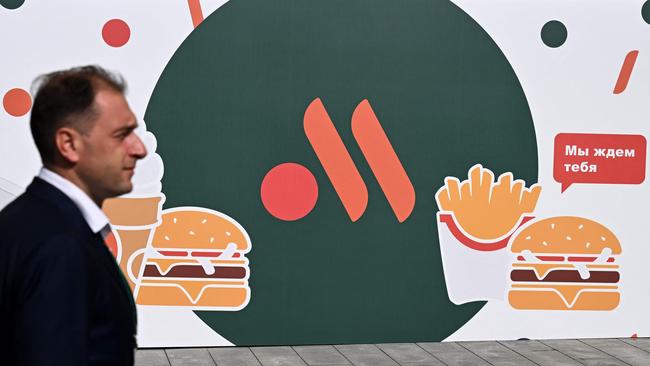
Yet supplies of semiconductors have still been getting through, thanks to smuggling networks or importers in Turkey, Hong Kong or other trading hubs that have not imposed sanctions.
9: Made it harder to know what’s going on inside the world’s largest nation
Russia, famously described by Sir Winston Churchill as “a riddle, wrapped in a mystery, inside an enigma”, has become even more difficult to read after many Western correspondents left.
One of the few remaining is Steve Rosenberg, the BBC’s Russia editor. Independent Russian media have been muzzled, while Ukraine has been flooded with journalists from all over the world.
10: Made us think greener
Higher energy prices are providing a greater incentive to install solar panels and heat pumps and to insulate our lofts.
European governments have been quick to find alternatives to energy once piped from Russia, buying more liquefied gas from Qatar and the US. They are also looking again at nuclear power – including in the form of small modular reactors – and investing in wind power.
11: Strengthened NATO
Just a few years ago, some were questioning the point of NATO. Not any longer. The war has provided the 73-year-old alliance with the sense of purpose it lacked after the end of the Cold War. NATO forces stationed in Poland, the Baltic States and other countries on its eastern frontline have been bolstered. Both Sweden and Finland have asked to join, though their applications are being held up by Turkey’s Recep Tayyip Erdogan, who is using the issue to persuade Stockholm to take a tougher line against Sweden-based Kurdish groups that oppose his regime.
12: Given a glimpse of the future of warfare
This war, which has featured Elon Musk’s 2000 Starlink satellites and old-style trench warfare, is being studied closely by military strategists. It offers a taste of the kind of conflict we should be prepared to wage in the future, argues Michael Clarke, visiting professor in the Department of War Studies at King’s College London.
“The Ukrainians are already doing what the British know we have got to learn to do in the future,” he says.
“We’re training the Ukrainian soldiers on a regular basis. But quite soon they will be training us.”
The Russians, by contrast, are fighting largely like a late-20th-century army. But for Sir Lawrence Freedman, emeritus professor at King’s, it is a “pretty old-fashioned war in many ways”, with an important role played by artillery bombardments and relatively little cyber warfare.
The sheer extent of Russia’s military incompetence has surprised him. “It also failed to take advantage of its air power, which I had assumed would be critical to its success,” Freedman adds. Drones, often cheap and expendable, are being used extensively.
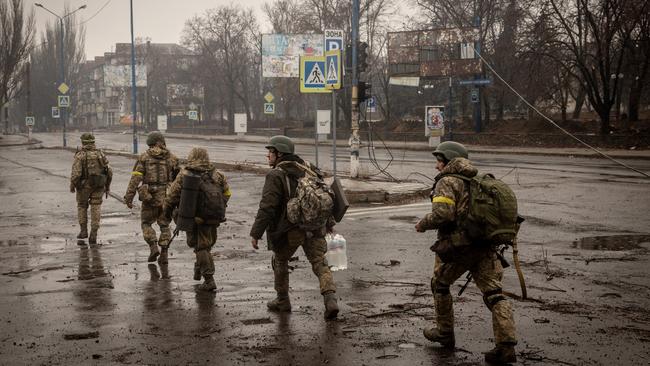
13: Showed the importance of charismatic leadership
Volodymyr Zelensky, the Ukrainian President, has become one of the world’s leading figures, making nightly morale-boosting broadcasts to the nation and popping up on video everywhere from the House of Commons to the Academy Awards.
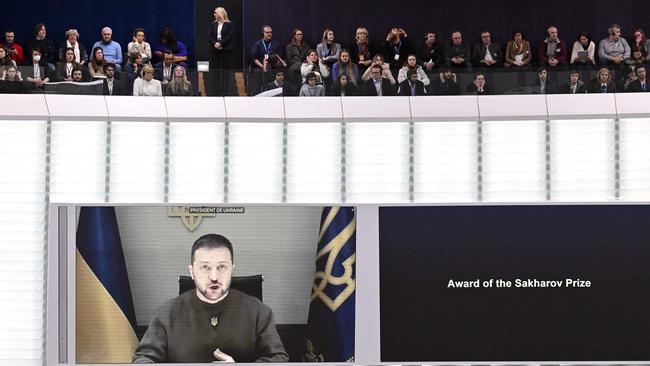
“The most important thing he has done is to press foreign governments to support him,” says Freedman. The contrast could not be greater with Putin, who has been seen browbeating underlings from the far end of a very long table.
14: Ended Germany’s military taboo
The war exposed the embarrassing extent to which Germany’s growth in recent years has been fuelled by cheap Russian oil and gas, making it dangerously dependent on Moscow.
Within days of the invasion, Chancellor Olaf Scholz announced major reforms of defence and energy policy, with a promised £87bn makeover of the military.
15: Brought a bonanza for arms manufacturers
Countries as far from the conflict as Japan and South Korea are also raising defence spending. This is giving a boost to US and European arms-makers, for whom the war is also providing a showcase for their wares.
“The Russians had been flogging weapons all over the world and the rest of the world can see they’re not very good and Western weapons are far, far better,” Clarke says.
Shares in America’s Lockheed Martin, which makes the F-35 fighter jet, as well as the Himars missile systems used to deadly effect by Ukrainian forces, have surged by a quarter since the invasion. Shares in BAE Systems are up almost 40 per cent.
16: Strengthened Ukrainian identity
To anyone not familiar with that part of the world, Ukraine and Russia seemed almost indistinguishable before the war. Woe betide anyone who confuses the two today. Most media now refer to cities by their Ukrainian rather than Russian names: Kyiv, rather than Kiev; Kharkiv instead of Kharkov; and Odesa with a single “s”. The war has sharply accentuated national pride and forced millions of Ukrainians with ties to Russia to reassess their perception of their giant neighbour.
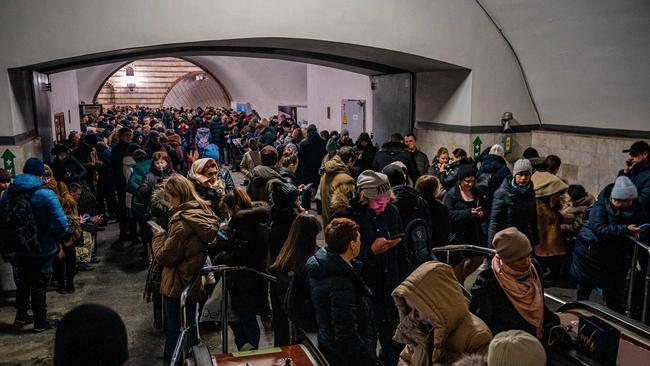
17: Broken ties in sport, science and the arts
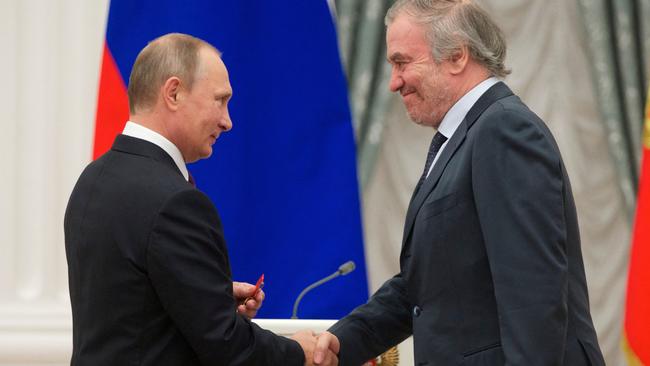
Russia hosted the 2018 World Cup but was ejected from the qualifying rounds for Qatar. Other sports have also banned the country’s athletes. Co-operation in some – but not all – international science projects has also ended. Valery Gergiev, Putin’s favourite conductor, has been declared persona non grata by several European concert halls, but other Russian musicians still play. La Scala opened its season this month with Mussorgsky’s opera, Boris Godunov, ignoring objections from the Ukrainian consul in Milan.
18: Threatened a cold war in the Arctic
A serious blow has been dealt to relations between Russia and its Arctic neighbours, ending three decades of co-operation begun in 1996 with the establishment of the eight-member Arctic Council.
The council’s activities were put on hold in March when its seven Western members suspended work with Russia, which held the rotating chair. This could impede work on environmental protection and sustainable development in a highly sensitive area and have a negative impact on the Inuit and other indigenous peoples living in the region.
19: Made plane journeys longer
Airlines flying to and from Asia have been obliged to take costly detours because they are not allowed to fly across Russian airspace.
“The added costs of fuel burn are enormous, and passengers have paid for it with higher fares,” says Mike Arnot, an airline industry commentator.
20: Given Chelsea a new owner
After 19 years under the ownership of Roman Abramovich, Chelsea Football Club was bought in May for £4.25bn by a consortium headed by Todd Boehly, a billionaire American businessman and investor. Abramovich announced he was selling a few days after the outbreak of the war “in the best interest of the club, the fans, the employees, as well as the club’s sponsors and partners”.
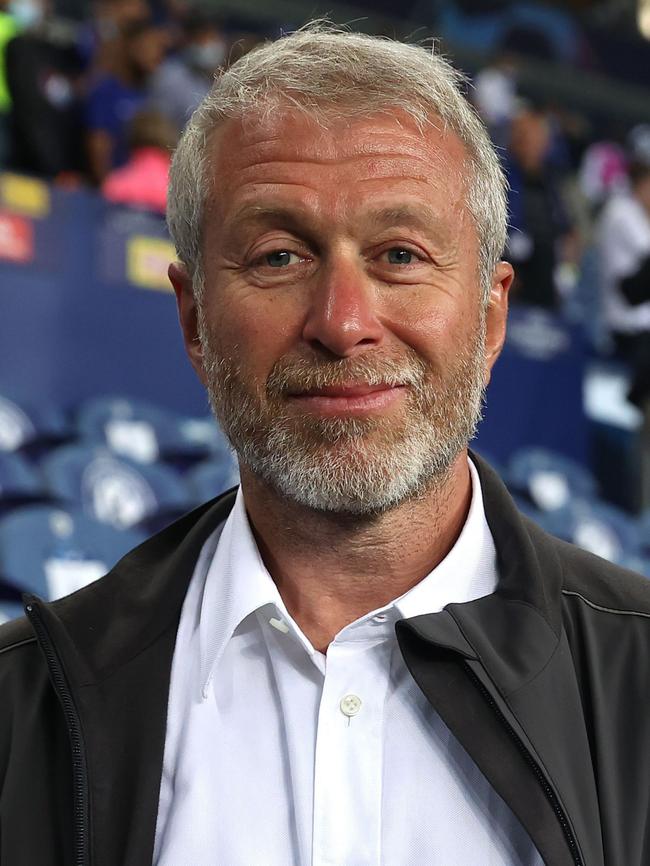

Who Lost Russia? From the Collapse of the USSR to Putin’s War in Ukraine, by Peter Conradi, is published by Oneworld
The Sunday Times


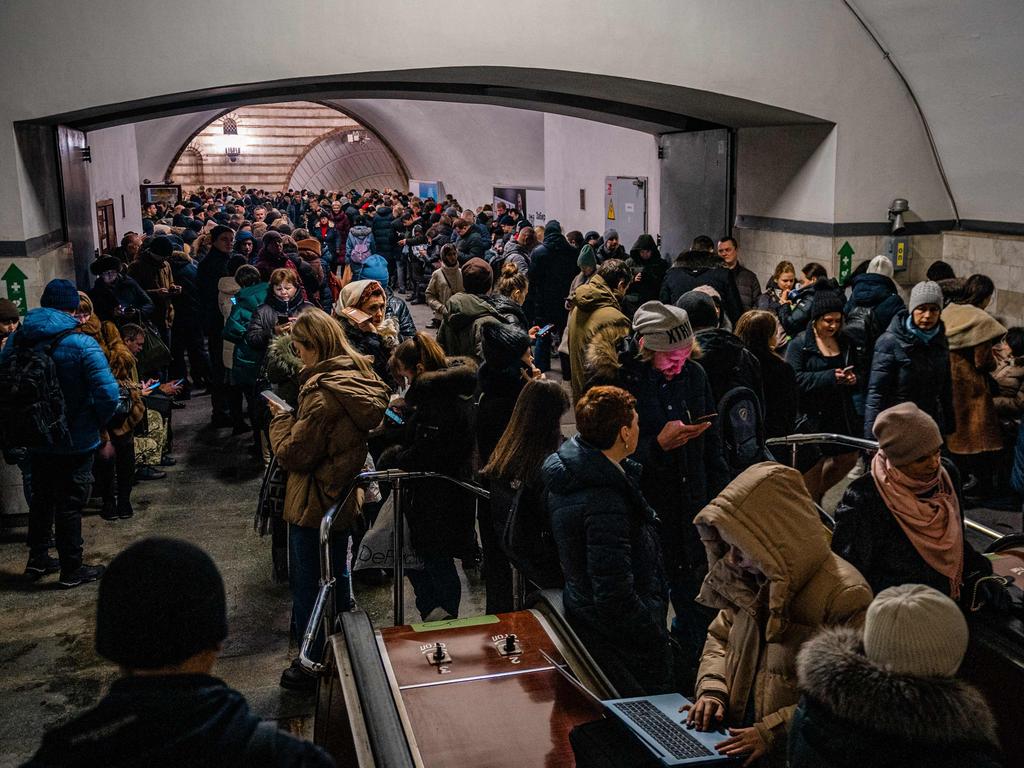


To join the conversation, please log in. Don't have an account? Register
Join the conversation, you are commenting as Logout